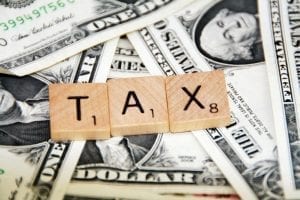Personal loans are also unsecured debts that can be relieved when filing for Chapter 7. This applies to money you borrowed from a family member, friend, or employer.
Milwaukee, WI – When going through a period of economic hardship, you may feel like you’re drowning in debt. If you know the feeling, it’s time to bite the bullet and do what thousands of people like you do every month – file for bankruptcy. According to the Chamber of Commerce, Wisconsin residents owe an average of $6,700 in credit card debt each month. And, yes, credit card debt can be discharged when filing for Chapter 7 bankruptcy. However, strict regulations apply and, if you want to make the most of it, you should reach out to experienced lawyers before filing for bankruptcy.
Types of debts that can be discharged under Chapter 7
Chapter 7 is a type of bankruptcy that allows you to get rid of many of your debts. The legal term is discharged, but what matters is that it will take the creditors off your back. When you file for Chapter 7, you can be rid of the following debts:
- Credit card debt
First of all, schedule a meeting with skilled Milwaukee bankruptcy lawyers to see if a certain credit card is eligible for debt discharge. Also, you need to be mindful of the conditions. For instance, you cannot go on spending money on luxury goods or services. At the same time, if you chose to pay your taxes with a credit card, you cannot be released from that debt.
- Medical bills
There is no cap on how much of your medical bills can be discharged by filing for Chapter 7 bankruptcy. That means you can relieve all your medical bills.
Only income taxes can be relieved when you file for bankruptcy. This refers to both state and federal taxes.
- Payday loans
Payday loans usually come with steep interest rates so a $1,000 loan can easily balloon to a $10,000 debt. Fortunately, payday loans fall under unsecured debts and can be erased when filing for bankruptcy.
- Lawsuits and judgments
If you owe money following a lawsuit, you should discuss the matter with knowledgeable Wisconsin bankruptcy lawyers. Not all lawsuit debts can be erased when filing for bankruptcy.
As an example, if you were convicted of wilful injury or drunk driving resulting in death or injury, you’re not off the hook for the money you owe your victim.
- Personal loans
Personal loans are also unsecured debts that can be relieved when filing for Chapter 7. This applies to money you borrowed from a family member, friend, or employer.
Types of debts that can NOT be discharged under Chapter 7
Filing for bankruptcy is your best option when going through a rough patch, but it’s not a cure-all. Certain debts cannot be relieved. You should talk things over with seasoned Milwaukee bankruptcy lawyers. For certain debts, it may be wiser to file for Chapter 13 bankruptcy. While under Chapter 7 you can get rid of most debts, Chapter 13 bankruptcy is more of a debt repayment plan.
Here are the main types of debts that cannot be erased under Chapter 7:
- State or federal taxes (other than income taxes)
- Child support and alimony
- Student loans
- Municipal fines
- Criminal fines
- Traffic fines
All these regulations can be very confusing, but you don’t have to go through the process alone. A good bankruptcy attorney can teach you how to get rid of most of your debts while making sure you don’t lose everything.
Since you’ll be dealing with lawyers and court clerks, now would be a good time to educate yourself a bit on legal matters.



Join the conversation!